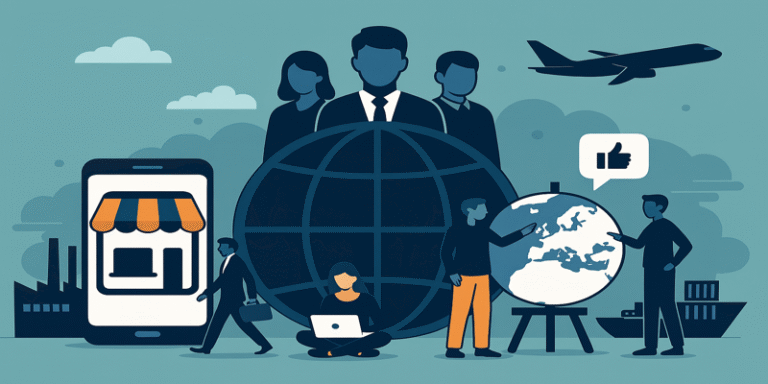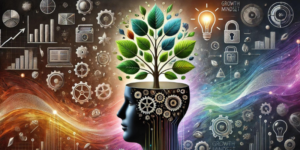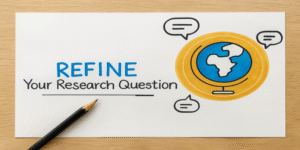In an increasingly interconnected world, the distinction between national and global governance has blurred, giving rise to transnational, international, and global organisations that influence politics, economics, and social policies. These organisations, encompassing everything from multinational corporations to international governmental bodies, play critical roles in shaping the global order. Their influence is felt in the regulation of trade, the protection of human rights, environmental conservation, and conflict resolution, among other areas. This article explores the roles and functions of these transnational, international, and global organisations, distinguishing their characteristics and examining their impact on the modern business world.
1.0 Defining Transnational, International, and Global Organisations
Transnational organisations are entities that operate across national borders without necessarily being tied to a single nation-state. They can include non-governmental organisations (NGOs), multinational corporations (MNCs), and activist networks that pursue global goals while maintaining a local presence (Sklair, 2002). These organisations do not rely on governmental structures but instead leverage global networks to exert influence.
International organisations, on the other hand, are typically intergovernmental bodies formed by multiple nation-states. Examples include the United Nations (UN), the World Trade Organisation (WTO), and the International Monetary Fund (IMF). These organisations are created through formal agreements and operate based on treaties or charters, often with the goal of fostering cooperation among states (Baylis, Smith & Owens, 2020). They facilitate dialogue and cooperation between countries and are usually involved in diplomacy, conflict resolution, and global governance.
Global organisations are those that seek to address issues affecting the entire world. These organisations often transcend national boundaries in terms of membership and agenda, addressing challenges such as climate change, global health, and international peace. Some examples include the World Health Organisation (WHO), Greenpeace, and Amnesty International. Global organisations may operate through both governmental and non-governmental frameworks (Held & McGrew, 2002).
2.0 The Role of Transnational Organisations
Transnational organisations, particularly multinational corporations (MNCs), wield significant power in the global economy. MNCs such as Apple, Toyota, and Nestlé operate across several countries, creating networks of production and distribution that span the globe. Their ability to move capital, labour, and technology across borders enables them to exert a level of economic influence that can sometimes surpass that of nation-states (Dicken, 2015). For instance, MNCs can influence policy through lobbying, market dominance, and even by shaping public opinion.
At the same time, transnational NGOs play an essential role in advocating for social change, often filling gaps left by governments. Organisations such as Médecins Sans Frontières (Doctors Without Borders) and the International Federation of Red Cross and Red Crescent Societies provide humanitarian aid in conflict zones and disaster areas, demonstrating the capacity of transnational bodies to operate where state mechanisms fail or are absent (Keck & Sikkink, 1998). These NGOs also raise awareness of global issues, such as human rights abuses and environmental degradation, helping to mobilise international responses.
Transnational organisations also challenge the traditional sovereignty of states, as their operations can sometimes bypass national laws and regulations. This phenomenon is particularly evident in digital economies, where companies like Google and Facebook operate transnationally, often evading strict regulatory oversight by governments. As a result, there is growing concern over the need for better regulation of transnational corporations, particularly regarding issues like tax avoidance, data privacy, and labour rights (Ruggie, 2013).
3.0 The Influence of International Organisations
International organisations are central to maintaining global stability and fostering cooperation among states. The United Nations (UN), for example, plays a critical role in peacekeeping, humanitarian aid, and upholding international law. Established in the aftermath of World War II, the UN has become the primary forum for addressing global conflicts and coordinating collective security efforts (Baylis, Smith & Owens, 2020). Through its various bodies, such as the Security Council, General Assembly, and International Court of Justice, the UN facilitates international dialogue and ensures that states adhere to international norms.
Another important international organisation is the World Trade Organisation (WTO), which oversees global trade rules. The WTO ensures that trade flows smoothly and predictably, promoting economic cooperation and reducing barriers to international commerce (Baldwin, 2016). This role is vital in an era of globalisation, where the economic prosperity of nations is increasingly interdependent. However, the WTO has also faced criticism for prioritising the interests of wealthier nations and multinational corporations over those of developing countries (Stiglitz, 2002).
The International Monetary Fund (IMF) and the World Bank are other key international organisations that focus on economic stability and development. The IMF provides financial assistance to countries facing economic crises, while the World Bank supports development projects in low-income countries. Both institutions have been instrumental in shaping the global economic order, particularly in times of financial instability, such as during the 2008 global financial crisis (Frieden, 2020).
4.0 Global Organisations and Their Impact on Global Business Issues
Global organisations, both governmental and non-governmental, are crucial in addressing challenges that affect the entire world. The World Health Organisation (WHO), for instance, played a leading role during the COVID-19 pandemic, coordinating international responses, disseminating information, and providing guidance on public health measures. The pandemic highlighted the importance of global cooperation in the face of transboundary challenges (Gostin, 2020).
Environmental issues, particularly climate change, have also spurred the rise of global organisations. The Intergovernmental Panel on Climate Change (IPCC), a global body created by the United Nations, provides scientific assessments of climate change, its impacts, and potential future risks (IPCC, 2018). In addition, NGOs such as Greenpeace and the World Wildlife Fund (WWF) have been instrumental in raising awareness about environmental degradation and advocating for sustainable practices. These organisations often operate on the global stage, pushing for international agreements such as the Paris Agreement, which aims to limit global warming to below 2°C (UNFCCC, 2015).
Global organisations also play a key role in human rights advocacy. Amnesty International, for example, works to protect individuals from human rights abuses by investigating and documenting violations, lobbying governments, and raising public awareness. Their work is often crucial in mobilising international pressure on regimes that violate human rights (Hopgood, 2013). By operating beyond national boundaries, these organisations help to hold states accountable for their actions on the global stage.
5.0 Comparative Overview
| Type | Characteristics | Examples | Focus/Functions |
| Transnational | Operates across borders; not limited to one nation | Apple, Toyota, Nestlé, Médecins Sans Frontières | Business expansion, humanitarian aid, social activism |
| International | Intergovernmental, based on treaties | United Nations, WTO, IMF | State cooperation, diplomacy, trade regulation |
| Global | Worldwide membership & agenda | WHO, Greenpeace, Amnesty International | Global health, environmental sustainability, human rights advocacy |
Transnational, international, and global organisations are integral to the functioning of the modern business landscape. Transnational organisations, including both corporations and NGOs, operate across borders, challenging traditional state sovereignty while providing essential services. International organisations such as the UN, WTO, and IMF foster cooperation among states, maintaining global peace and economic stability. Finally, global organisations address issues that affect humanity as a whole, from climate change to pandemics and human rights abuses. As the world continues to face increasingly complex and interconnected challenges, the role of these organisations will only become more crucial.
References:
Baldwin, R. (2016) The Great Convergence: Information Technology and the New Globalization. Harvard University Press.
Baylis, J., Smith, S., & Owens, P. (2020) The Globalization of World Politics: An Introduction to International Relations (8th ed.). Oxford University Press.
Dicken, P. (2015) Global Shift: Mapping the Changing Contours of the World Economy. 7th ed. SAGE Publications.
Frieden, J. (2020) Global Capitalism: Its Fall and Rise in the Twentieth Century. W. W. Norton & Company.
Gostin, L. O. (2020) Global Health Law. Harvard University Press.
Held, D., & McGrew, A. (2002) Globalization/Anti-Globalization. Polity Press.
Hopgood, S. (2013) The Endtimes of Human Rights. Cornell University Press.
IPCC (2018) “Global Warming of 1.5°C”. [Online]. Available at: https://www.ipcc.ch/sr15/. [Online]. [Accessed on 17 October 2024].
Keck, M. E., & Sikkink, K. (1998) Activists Beyond Borders: Advocacy Networks in International Politics. Cornell University Press.
Ruggie, J. G. (2013) Just Business: Multinational Corporations and Human Rights. W. W. Norton & Company.
Sklair, L. (2002) Gloalization: Capitalism and Its Alternatives. Oxford University Press.
Stiglitz, J. (2002) Globalization and Its Discontents. W. W. Norton & Company.
UNFCCC (2015) “The Paris Agreement”. [Online]. Available at: https://unfccc.int [Accessed on 17 October 2024].









